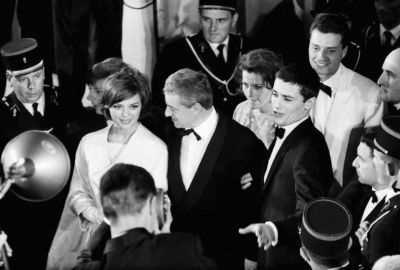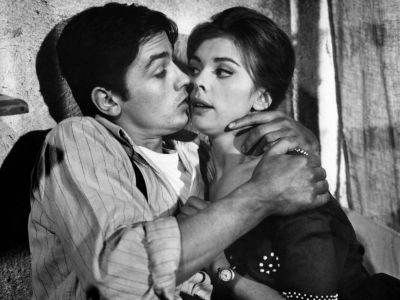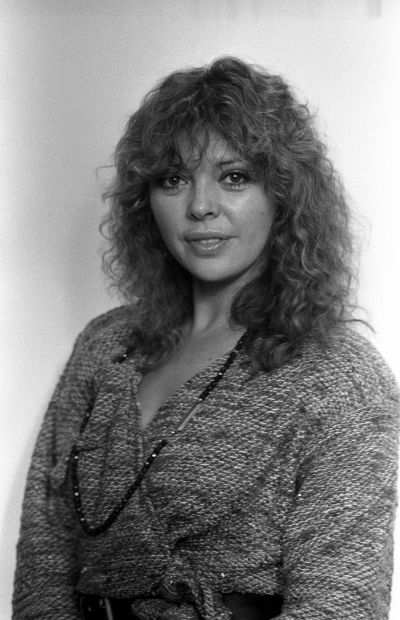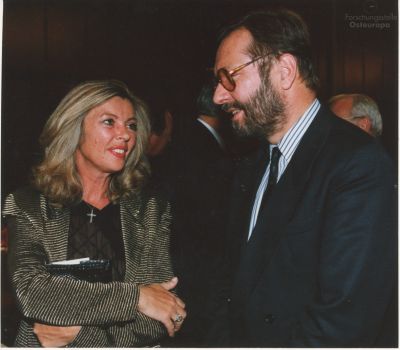Barbara Kwiatkowska-Lass (1940–1995)

At the time, Barbara Kwiatkowska was having an affair with Tadeusz Chmielewski. Because the relationship with the married director, who was a dozen years older, was inevitably destined to fail, the young woman, plagued by doubts, often confided in Roman Polański. The two eventually became a couple, although their relationship could be classed as somewhat liberal because both of them had other partners. And what’s more, Barbara was also linked to the graphic artist Lech Zahorski, but this did not stop Polański asking for her hand in marriage. She said ‘yes’ and the pair married in 1959. The marriage was celebrated so boisterously that the neighbours had to call the police. However, the police officers left again without taking any action when they realised that the bride was the famous actress.
Her career in France began under the protection of Polański. Because Barbara Kwiatkowska did not speak any French, her husband established contact with directors and also chose the roles for her. She had to learn the scripts phonetically off by heart. Polański’s contacts got her the main role in the film “La 1000eme fenêtre” (The house of the 1000 windows) by the French director Robert Ménégoz . One year later in 1960, she played alongside Alain Delon in the Italian-French production “The joy of living” (Original title: Che gioia vivere). At that time, the producer persuaded her to adopt the stage name “Lass“. Roman Polański spent his wife’s fee on a red Mercedes convertible. It soon turned out that this striking car would be the only souvenir of his marriage to the actress.
In 1961, Barbara Kwiatkowska-Lass travelled to Rome where she met the Austrian actor Karlheinz Böhm on the set of the film “Rififi in Tokyo. Böhm had become a cinema icon in Germany and in Austria when he played the young Emperor Franz Joseph in “Sissi” in 1955. The beautiful-looking actor, who was famed for playing lovers, was a heartthrob and Kwiatkowska also fell victim to his charm. Soon afterwards, she became his third wife. The couple settled in Bavaria. The actress, who had had great success in Poland and abroad, now led her life at the side of her famous husband. In 1964, their daughter Katharina was born and Barbara led her life as a wife and mother. But their idyll was clouded by Böhm’s jealousy and he forbade her to make any more films. The actress succumbed to the will of her husband and allowed him to write to her agent that she should not be sent any more film offers. In an interview years later, she admitted, “I behaved like an idiot. I regret it because my decision was testimony to my weakness”. [5]
In 1967, Barbara Kwiatkowska could be seen once more alongside Daniel Olbrychski and Zbigniew Cybulski in the title role of “Jowita”. After that, she disappeared almost completely from the screen and only appeared sporadically in German film and TV productions, such as “Der Pfarrer von St. Pauli” (1970) and in Rainer Werner Fassbinder’s “Effi Briest” (1974). In the main, she devoted herself to her home and to bringing up her daughter who, as a young adult, also decided to be an actress. Her parent’s marriage finally fell apart in 1980. Kwiatkowska wanted to return to the screen but this was not easy for her because the long hiatus meant that she had been forgotten by the film world. Nevertheless, she did manage a few more films, with her most famous role during this period being the mother in “Rosa Luxemburg” (1986).
[5] Miniewicz, Sonia: Barbara Kwiatkowska-Lass: kochała, żyła, teraz śpi, in: onet.pl, 12/6/ 2021, URL: https://kultura.onet.pl/film/wywiady-i-artykuly/barbara-kwiatkowska-lass-kochala-zyla-teraz-spi/rfbqs3f (last accessed on 13/9/2021).



















